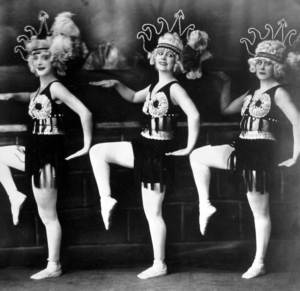It would be lovely if they would extend their services to treating Gaza’s wastewater, reducing the size of their traditional poo ponds.
 [AlAhram] President Abdel-Fattah al-Sisi’s opening of the world’s largest wastewater treatment plant boosts efforts to populate Sinai and increases Egypt’s water resources
[AlAhram] President Abdel-Fattah al-Sisi’s opening of the world’s largest wastewater treatment plant boosts efforts to populate Sinai and increases Egypt’s water resourcesOn Monday, President Abdel-Fattah al-Sissi inaugurated the world’s largest wastewater treatment plant. Bahr al-Baqar wastewater treatment plant, east of Port Said, will treat 5.6 million cubic metres per day which can then be used to irrigate agricultural land in Sinai.
Mohammed Ghanem, Irrigation Ministry spokesperson, said the plant aims to process two billion cubic metres of water annually "to contribute to the reclamation of between 400,00 and 500,000 feddans as part of the national project to develop Sinai and make optimal use of water resources".
"Egypt’s water resources are estimated at 60 billion cubic metres per year, 55 billion of which come from the River Nile and five billion from rain and underground sources, forcing the government to look for other sources. We are currently involved in building wastewater projects that will help process 20 billion cubic metres annually. Soon the Bahr al-Baqar station will be joined by al-Hammam station in the west of the Delta," said Ghanem. "While water treated by Bahr al-Baqar will irrigate Sinai, water processed by al-Hammam station will be used to irrigate lands around al-Natroun."
Tarek al-Rifaai, spokesperson of the Ministry of Housing and New Communities, revealed that 146 wastewater treatment projects with a combined daily capacity of 5.8 million cubic metres are currently under construction in Egypt.
"Egypt’s population is increasing rapidly. We desperately need water to meet the needs of this growing population and to irrigate as much agricultural land as possible."
Water treated by Bahr al-Baqar station will allow new agricultural, industrial and housing communities in Sinai to be developed, says Agricultural Syndicate head Sayed Khalifa. "The government is aiming to expand Egypt’s inhabited land from 14 to 17 per cent of the land mass, and most of this increase will be in Sinai. Water treated by Bahr al-Baqar will reach the peninsula through underground pipelines to reclaim land there."
President al-Sissi said on Monday that Egypt is in a race against time to double its water resources. He revealed that the cost of treating waste water to cultivate half a million feddans in Sinai will reach LE160 billion, which "will be covered by soft-term loans from Arab development funds."
Bahr al-Baqar was built by the Arab Contractors and Orascom Construction, and funded by the Arab Fund for Economic and Social Development and the Kuwait Fund for Arab Economic Development.
Prime Minister Mustafa Madbouli said during Monday’s inauguration that projects to develop and populate Sinai have cost LE700 billion so far. "We are currently implementing 63 projects, the most important of which include the building of six underground tunnels to link Sinai with the rest of Egypt," said Madbouli. "These projects aim to put an end to Sinai’s isolation and make it a population magnet."
As part of this strategy, seawater desalination plants are being developed, which Madbouli described as "central to populating and developing Sinai". The plant currently being built at Arish, he added, will produce 300,000 cubic metres annually of desalinated water.
Populating Sinai is central to Egypt’s national security objectives, observed Madbouli, and the main vehicle for this is the National Project for Developing Sinai, one of the first initiatives launched by President al-Sissi following his election in 2014.
Major General Ihab al-Far, head of the Armed Forces’ Engineering Organisation, said the flow of water from Bahr al-Baqar to Sinai "will speed up the process of populating the peninsula".
He added that "the Armed Forces are participating in developing Sinai through two kinds of projects: building 34 seawater desalination stations to produce 442 million cubic metres of drinking water to meet the needs of the population of Sinai, and constructing 36 wastewater treatment stations to process 473 million cubic metres per year of water to irrigate agricultural lands."

 [ENGLISH.AAWSAT] Egypt’s Minister of Water Resources and Irrigation Mohammed Abdel Aty has urged state institutions run by his ministry to monitor and stop any encroachment on water canals and irrigation properties.
[ENGLISH.AAWSAT] Egypt’s Minister of Water Resources and Irrigation Mohammed Abdel Aty has urged state institutions run by his ministry to monitor and stop any encroachment on water canals and irrigation properties. DAMASCUS - Syrian writer
DAMASCUS - Syrian writer